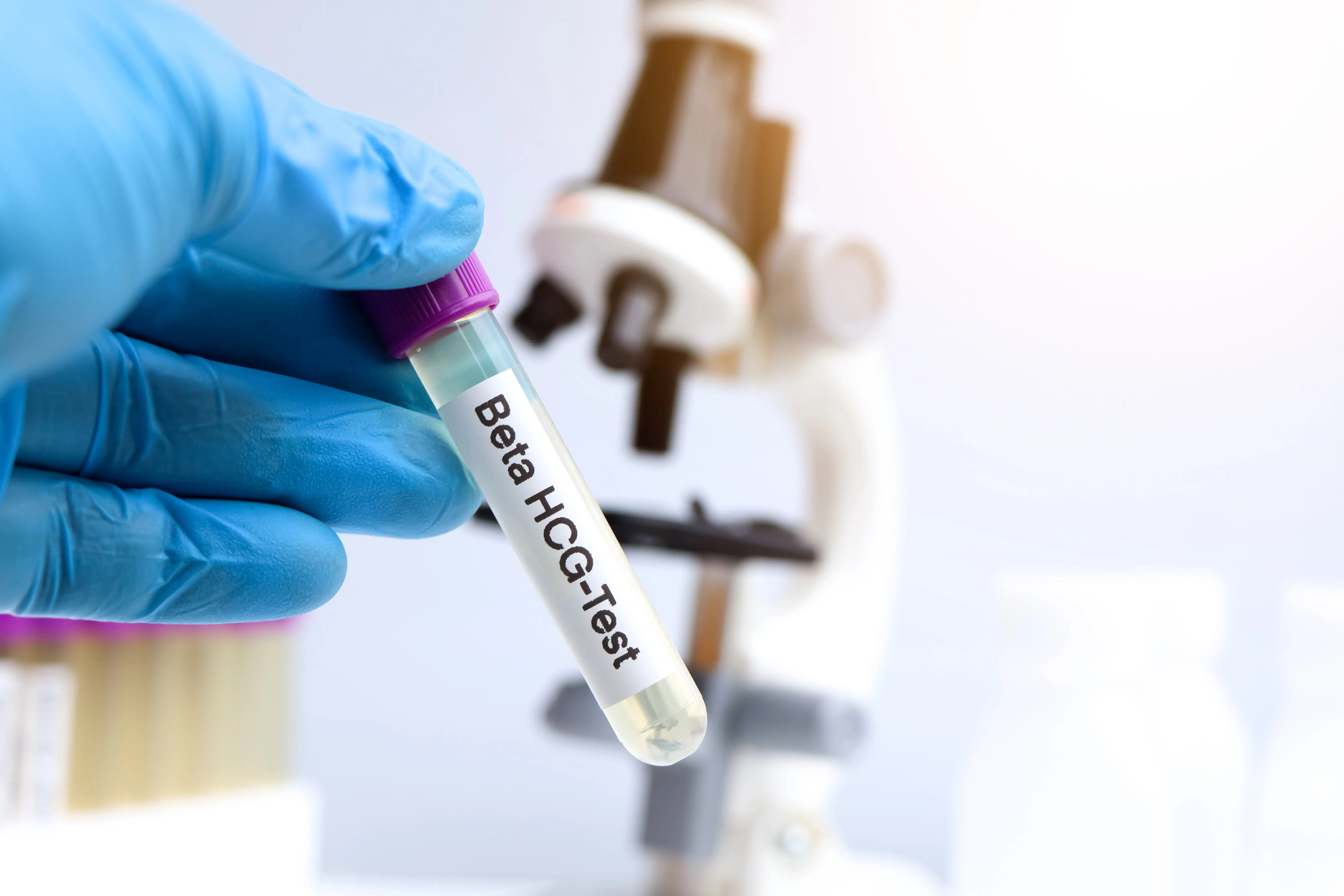GCT Test Normal Range Explained
Know about the GCT test, normal range, results, and interpretation. Learn how to manage the GCT and get tips for a healthy pregnancy.


Introduction
If you’re pregnant or planning to be, you may have heard about the Glucose Challenge Test (GCT). This simple test helps check how your body processes sugar and screens for gestational diabetes—a temporary form of diabetes that can develop during pregnancy.
Understanding your GCT test results is important for ensuring a healthy pregnancy. In this article, we’ll explain what the normal range means, why the test is done, and what to do if your results are outside the expected range.
What Is the GCT Test?
The Glucose Challenge Test (GCT) is a routine screening test done between 24 and 28 weeks of pregnancy. It checks how your body handles sugar (glucose).
How Is the Test Done?
1. You’ll be asked to drink a sweet glucose solution (usually 50g of glucose).
2. After one hour, a blood sample is taken to measure your blood sugar levels.
3. No fasting is required before this test.
What Is the Normal Range for the GCT Test?
The normal range for the 1-hour GCT test is:
- Below 140 mg/dL (7.8 mmol/L) → Normal (no further testing needed).
- 140–199 mg/dL (7.8–11.0 mmol/L) → Borderline (may need a follow-up Glucose Tolerance Test (GTT)).
- 200 mg/dL (11.1 mmol/L) or higher → Likely gestational diabetes (further testing required).
If your result is above 140 mg/dL, your doctor may recommend a 3-hour Glucose Tolerance Test (GTT) for confirmation.
Consult an endocrinologist for Personalised Advice
Why Is the GCT Test Important?
Gestational diabetes (GD) can develop during pregnancy due to hormonal changes that affect insulin function. If left untreated, it can lead to:
- High birth weight (macrosomia) makes delivery harder.
- Low blood sugar in the baby after birth.
- Increased risk of C-section
- Higher chance of type 2 diabetes later in life for both mother and child.
Early detection through the GCT test helps manage blood sugar levels and reduces risks.
What If My GCT Results Are High?
Don’t panic—many women with borderline or high GCT results do not have gestational diabetes. A follow-up Oral Glucose Tolerance Test (OGTT) is needed for a clear diagnosis.
What Happens in the OGTT?
1. Fasting overnight (8–12 hours).
2. Blood test before drinking glucose solution (75g or 100g).
3. Blood tests at 1, 2, and sometimes 3 hours after drinking.
OGTT Normal Ranges (for 75g test):
Fasting: Below 92 mg/dL
1-hour: Below 180 mg/dL
2-hour: Below 153 mg/dL
If two or more values are high, gestational diabetes is confirmed.
Managing Gestational Diabetes
If diagnosed, most women control it with diet and exercise. Here’s how:
Diet Tips
- Eat small, frequent meals .3 meals + 2-3 snacks.
- Choose complex carbs. whole grains, vegetables, beans.
- Avoid sugary foods & drinks. soda, sweets, and fruit juices.
- Include protein & healthy fats. nuts, eggs, lean meat.
Exercise Tips
- Walk for 30 minutes daily. helps lower blood sugar.
- Try prenatal yoga or swimming. gentle on joints.
Monitoring & Medical Care
- Check blood sugar levels as advised.
- Attend regular prenatal visits.
- Some may need insulin or medication (if diet/exercise isn’t enough).
When to Consult a Doctor?
If you experience:
- Extreme thirst or frequent urination
- Unusual fatigue
- Blurred vision
- Recurrent infections (UTI, yeast infections)
Book a consultation with your doctor or schedule a GCT/OGTT test through Apollo 24|7 for proper guidance.
Final Thoughts
The GCT test is a simple but crucial part of prenatal care. A normal result (below 140 mg/dL) means your body is handling glucose well. If your levels are higher, follow-up tests and lifestyle changes can help keep you and your baby healthy.
Consult an endocrinologist for Personalised Advice
Consult an endocrinologist for Personalised Advice

Dr. Arunava Ghosh
General Physician/ Internal Medicine Specialist
10 Years • MBBS,MD(GENL.MED.),DM(ENDOCRINOLOGY)
Kolkata
VDC Clinic, Kolkata
Dr. Kiran Kumar Pasam
Endocrinologist
12 Years • MBBS, MD(General Medicine), DM (Endocrinology)
Hyderabad
Dr Kiran Kumar Pasam, Hyderabad
(25+ Patients)

Dr. Shiva Madan
Endocrinologist
10 Years • MBBS , MD (General medicine) , DM (Endocrinology)
Bikaner
Sushma diabetes and Endocrine center, Bikaner

Dr. Nilotpal Mitra
General Physician/ Internal Medicine Specialist
20 Years • MBBS, PGDGM ( Geriatric Medicine), ACMDC (an Advance course in Diabetes and cardiovascular diseases from PHFI and WHF )
Kolkata
MCR SUPER SPECIALITY POLY CLINIC & PATHOLOGY, Kolkata
Dr. M. A. Mujeeb Afzal
Endocrinologist
13 Years • MBBS , MD (General medicine) , DM (Endocrinology)
Hyderabad
Diabetes Thyroid and Hormones (DTH) Clinic, Hyderabad
Consult an endocrinologist for Personalised Advice

Dr. Arunava Ghosh
General Physician/ Internal Medicine Specialist
10 Years • MBBS,MD(GENL.MED.),DM(ENDOCRINOLOGY)
Kolkata
VDC Clinic, Kolkata
Dr. Kiran Kumar Pasam
Endocrinologist
12 Years • MBBS, MD(General Medicine), DM (Endocrinology)
Hyderabad
Dr Kiran Kumar Pasam, Hyderabad
(25+ Patients)

Dr. Shiva Madan
Endocrinologist
10 Years • MBBS , MD (General medicine) , DM (Endocrinology)
Bikaner
Sushma diabetes and Endocrine center, Bikaner

Dr. Nilotpal Mitra
General Physician/ Internal Medicine Specialist
20 Years • MBBS, PGDGM ( Geriatric Medicine), ACMDC (an Advance course in Diabetes and cardiovascular diseases from PHFI and WHF )
Kolkata
MCR SUPER SPECIALITY POLY CLINIC & PATHOLOGY, Kolkata
Dr. M. A. Mujeeb Afzal
Endocrinologist
13 Years • MBBS , MD (General medicine) , DM (Endocrinology)
Hyderabad
Diabetes Thyroid and Hormones (DTH) Clinic, Hyderabad




